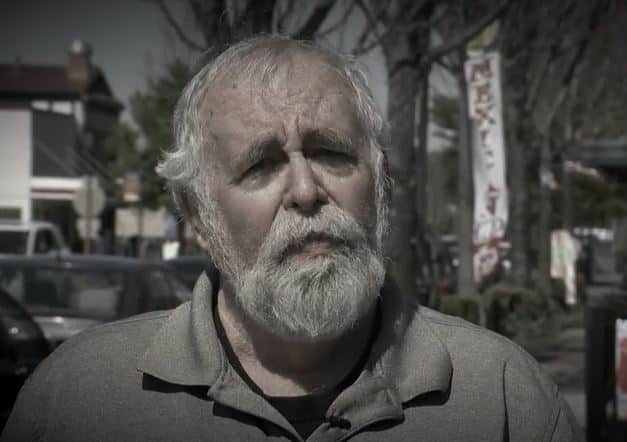Cert Petition Decisions on Tuesday Could Spell the True End of Bivens Precedent

WASHINGTON — The line originally comes from Ecclesiastes 3 in the King James version of The Bible, but is likely better known to generations of music fans due to the autumn 1965 hit “Turn! Turn! Turn!” by The Byrds.
“To every thing,” the good book and the long-haired rock and rollers tell us, “there is a season.”
And it certainly has seemed so during this, almost concluded session of the U.S. Supreme Court.
First there was the leaked draft complaint that suggests that in just a matter of days at this point, the Roberts court may set aside 50 years of precedent and overturn Roe v. Wade’s protections to a woman’s right to an abortion.
Similarly, just last week, the court took the latest of a series of steps over the years to roll back protections the Supreme Court established five decades ago in Bivens v. Six Unknown Named Agents of the Federal Bureau of Narcotics.
It was during the Reconstruction era — 1871, to be exact — that Congress passed a civil rights statute specifically authorizing constitutional lawsuits against state and local law enforcement officials and officers.
But it never extended that right to file lawsuits against federal law enforcement.
The situation changed with Bivens, a case that stemmed from agents with what was then the Federal Bureau of Narcotics searching the home of a man without a warrant.
Fittingly, given our opening, the incidents underlying the case also go back to the autumn of 1965 and the week before The Byrds’ single reached number one on the Billboard Charts.
On the night of Nov. 26, 1965, six federal agents forced their way into Webster Bivens’ home without a warrant and searched the premises.
While they did so, they handcuffed Bivens in front of his wife and children and ultimately took him to the federal courthouse in Brooklyn, New York, where he was interrogated, subjected to a visual strip search and booked on narcotics charges.
In July 1967, Bivens sued the agents for $15,000 in damages each for humiliation and mental suffering. The district court dismissed the complaint for failure to state a cause of action, and the 2nd U.S. Circuit Court of Appeals affirmed.
The case then went to the Supreme Court, where Justice William Brennan, writing for the 6-3 majority, reversed the 2nd Circuit and remanded the case for further proceedings.
Brennan concluded that there is a private right of action for monetary damages where no other federal remedy is provided for the vindication of a constitutional right, based on the principle that for every wrong, there is a remedy.
In Bivens’ case, he said, the petitioner did have a cause of action for damages arising from the federal agents’ Fourth Amendment violations. He went on to say that Bivens must provide proof of his injuries in order to recover.
Justice John Harlan concurred in the judgment, writing that federal courts have the power to award damages for constitutional violations.
But the three justices in the minority, led by Chief Justice Warren Burger, responded gravely to the decision.
Burger, in dissent, argued the doctrine of separation of powers would be better served if the question before the court were left to Congress. Justices Hugo Black and Harry Blackmun agreed — Black asserting that if Congress had wanted to create such a cause of action, it would have done so.
The question that has divided lower courts ever since is just how far does the precedent go?
Was Bivens ultimately only about warrantless searches, or does it permit lawsuits against federal law enforcement in other circumstances?
A Precedent Slowly Winnowed Away
The tide appears to have turned on that question in 2001, when in the case of Correctional Services Corp. v. Malesko, Justice Antonin Scalia laid out a theory that conservatives on the court have used to continue to winnow away at the availability of constitutional claims against federal officials.
Malesko barred what have become known as “Bivens claims” against private corporations running federal prisons.
But Scalia’s opinion in Malesko dramatically recast the Bivens cause of action created by the earlier court, making it generally unavailable, unless the court had explicitly granted an extension into a specific “new context.”
It also reimagined the court’s earlier restriction of Bivens, decided on a case-by-case assessment of institutional competencies as actually resting on “bedrock principles of separation of powers.”

Separately, Scalia attacked Bivens as “a relic of the heady days in which this court assumed common-law powers to create causes of action … by the mere existence of a statutory or constitutional prohibition.”
“Then the court really ratcheted things up in 2017 with Ziglar v. Abbasi, and then again in 2020 with Hernandez v. Mesa,” said attorney Patrick Jaicomo in an email to The Well News this week.
Jaicomo and fellow attorney Anya Bidwell are lawyers with the Institute for Justice who represent Kevin Byrd and Hamdi Mohamud — two alleged victims of federal law-enforcement abuse — before the Supreme Court.
They have also written extensively on Bivens and the life and challenges to the ruling since it was handed down.
The Supreme Court’s 2017 ruling in Ziglar v. Abbasi prevented a suit against federal officials who orchestrated the unconstitutional detention of Muslims after 9/11.
Its 2020 ruling in Hernandez v. Mesa prevented a suit against a Customs and Border Protection officer who killed an unthreatening Mexican teenager.
The latest ruling in what critics call the court’s “death-by-a-thousand-cuts approach to federal accountability” was handed down last week in the case Egbert v. Boule.
A Border Crossing and Intimidation
In a 6-3 decision announced on June 8, the Supreme Court ruled that claims filed by individuals under Bivens do not extend to Fourth Amendment claims of excessive force or First Amendment claims of retaliation.
This ruling prevents Robert Boule, owner of the Smuggler’s Inn in Blaine, Washington, from bringing a Bivens lawsuit against U.S. Customs and Border Patrol Agent Erik Egbert after a physical and verbal altercation in which Boules argued that Egbert violated his Fourth and First Amendment rights.
The underlying facts of the case read like a Netflix series.
The Smuggler’s Inn sits on property that actually extends a few feet into Canada and a line of rocks set out on the property marks the international boundary. There is no fence, and for years the bed and breakfast has been a magnet for those intent on making illegal border crossings.
Two years ago, Boule was charged in Canada with 21 counts related to human smuggling, allegedly charging illegals up to $700 in U.S. currency to help them across the U.S.-Canadian border, but he was ultimately sentenced to time served and probation.

As a condition of his release, he was ordered to place signs up on his property warning people that crossing into Canada was illegal and was bound by a court order to report the identity of anyone seeking to cross illegally to Canadian authorities.
For years, Boule also served as a confidential informant for the U.S. government, and portions of documents filed in his Supreme Court case were redacted.
It was allegedly while serving in this role, in March 2014, that Boule told Border Patrol Agent Erik Egbert that a guest arriving at the inn was from Turkey.
According to court documents, Egbert has said he was suspicious that the guest would travel over 7,500 miles to stay at his “rundown bed-and-breakfast,” and when the guest arrived, he went to the property to investigate.
Boule asked him to leave, but Egbert allegedly threw him to the ground, injuring him. After determining the guest was legally in the country, Egbert left. The guest ultimately crossed into Canada illegally the same night, court filings said.
Boule notified Egbert’s supervisors and filed an administrative claim about the rough treatment, and Boule says Egbert retaliated by making reports about him and his business to various state and federal agencies including the Internal Revenue Service.
A document filed in the case shows the investigation concluded Egbert’s removal from his position was warranted because he wasn’t forthcoming with investigators. But Egbert continues to work for the Border Patrol, Boule’s lawyer has said.
Boule sued, saying Egbert had violated his Fourth Amendment rights by using excessive force and his First Amendment rights by retaliating against him.
A federal trial court ruled for Egbert, but an appeals court reversed the decision and Egbert appealed to the Supreme Court.
Writing for the court, Justice Clarence Thomas agreed with the Burger court dissenters of 51 years ago that “Congress is better positioned to create remedies in the border-security context, and the government already has provided alternative remedies that protect plaintiffs like Boule.”
“Because our cases have made clear that, in all but the most unusual circumstances, prescribing a cause of action is a job for Congress, not the courts, we reverse,” Thomas concluded.
Justice Neil Gorsuch agreed, writing in a concurring opinion that “weighing the costs and benefits of new laws is the bread and butter of legislative committees.”
“It has no place in federal courts charged with deciding cases and controversies under existing law,” he said.
All nine of the court’s justices agreed that Boule shouldn’t be able to pursue his retaliation claims, but the court’s three liberal justices said he should have been able to pursue his excessive force claims, saying the facts of the case were very similar to the case the court decided in 1971.
In a separate opinion concurring in part and dissenting in part, Justice Sonia Sotomayor wrote that the majority’s decision “contravenes precedent and will strip many more individuals who suffer injuries at the hands of other federal officers … of an important remedy.”

She went on to say that “just five years after circumscribing the standard for allowing Bivens claims to proceed, a restless and newly constituted court sees fit to refashion the standard anew to foreclose remedies in yet more cases,” suggesting it was a change in the court’s conservative balance during the Trump administration, and not facts of the case or the law, that inspired the ruling by Thomas and his conservative colleagues.
At various points, she went on to blast the majority’s statements in spelling out its position in the rulings as “sheer hyperbole,” “drive-by categorical assertions” and “mere sleight of hand.”
She was joined in her opinion by Justices Elena Kagan and the outgoing Stephen Breyer.
Immediately after the ruling was announced, David Gans, civil rights director for the Constitutional Accountability Center, a nonprofit think tank in Washington, D.C., said, “the 6-3 conservative majority of the Roberts court, once again, closes the courthouse door on individuals victimized by government abuse of power, this time holding that federal border guards cannot be sued, even for flagrant constitutional violations. It is a grave error that betrays our Constitution.”
Gans, whose organization filed an amicus brief in the case, went on to say, “The Constitution was written, drafted, and ratified against a legal backdrop that recognized that officers could be sued in a court of law for violating individual rights.
“If the court had followed the Constitution’s text and history, it would have recognized that federal law enforcement officers, including border control guards, can be held accountable in court for violating constitutionally guaranteed rights,” he continued. “Instead, one of the world’s largest law enforcement forces will now be able to violate constitutionally guaranteed rights with impunity, striking a severe blow to constitutional accountability and the rule of law.”
Doug Pennington, a spokesman for the center, told The Well News this week that for now, with the high court heading into the final weeks of the term, the organization had no further statement to add about the case.
“Though it could well be a topic we return to in the months ahead,” he added.
What Does It Mean?
When asked by The Well News whether it’s now to be open season on precedents that seemed largely set in stone for several decades, Patrick Jaicomo, who also filed an amicus brief in Egbert v. Boule, conceded there is some superficial similarity between what has happened to Bivens and what may soon happen with Roe.
“But the big distinction between Egbert and Dobbs (Dobbs v. Jackson Women’s Health Organization, the Mississippi case that was the subject of the leak), if the decision is substantially similar to the leaked draft, is that Egbert purports not to overrule Bivens, even if it effectively comes very close,” Jaicomo said via email.
“Indeed, that is the subject of Justice Gorsuch’s concurrence in Egbert. He wants Bivens to be overruled and criticizes Egbert for doing everything but actually saying it is,” he continued. “Justice Gorsuch says the court should not give future litigants ‘false hope.’ Based on the leaked draft, Dobbs would actually overrule Roe. It’s anyone’s guess as to why the court is taking one approach in Egbert and another in Dobbs.”
As far as what Egbert actually means, courts, potential litigants and lawyers across the country may have a better idea this coming Tuesday.
The Institute for Justice has two cases pending on cert that raise the same issues as Egbert but in the context of domestic federal policing, rather than immigration-related policing, as in Egbert.
“If the court allows those cases to go forward, there is something left of Bivens: You can still sue federal police for Fourth Amendment violations they commit while engaged in domestic policing,” Jaicomo said. “If the court denies those cases on next Tuesday’s orders list, it is difficult to envision a Bivens case that can proceed after Egbert.
“In the latter case, the court will have effectively overruled Bivens without confronting stare decisis or provoking the kind of public outrage that something like overruling Roe will presumably cause,” he continued. “That means there will be a lot less pressure on Congress to solve the problem, which it could do by adding five words to Section 1983” of the U.S. Code.
“Either way, I suspect we will see a large number of Bivens cases dismissed in the lower courts over the next few months,” he said.
Last December, Reps. Hank Johnson, D-Ga., and Jamie Raskin, D-Md., reintroduced the Bivens Act, which would codify the protections afforded by the Supreme Court’s 1971 ruling and allow citizens to recover damages for constitutional violations committed against them by federal law enforcement officials, including those with U.S. Immigration and Customs Enforcement, the Transportation Security Administration, the Federal Bureau of Investigation, the Department of Justice and federal prison officials.
When the representatives first introduced the Bivens Act in 2020, Sen. Sheldon Whitehouse, D-R.I., introduced a companion in the Senate. The Senate bill is now cosponsored by Sens. Alex Padilla, D-Calif., Ed Markey, D-Mass., and Ron Wyden, D-Ore.
Unfortunately, Jaicomo said, both bills have languished since their introduction.
“I would urge Congress to pass that bill in conjunction with the Ending Qualified Immunity Act. Those two simple statutes would go a long way to restoring constitutional accountability for federal, state and local officials of all types — not just police,” he said.
Dan can be reached at [email protected] and @DanMcCue
























